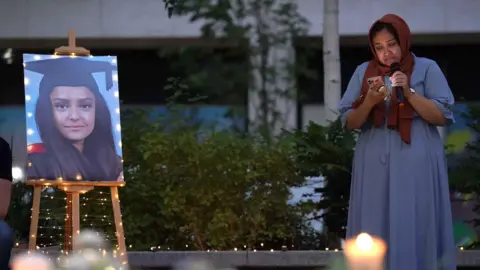On May 7, 2025, legislation is set to be introduced in the Parliament of England and Wales aimed at deterring criminals from skipping their sentencing hearings. Under this new bill, offenders who refuse to attend sentencing could face an additional two years behind bars. The move comes in response to growing frustrations among victims’ families, who believe that such absences allow offenders to escape the repercussions of their crimes, undermining the justice process.
Supporters of the bill argue that it is crucial for the integrity of the legal system. The families of notorious criminal cases, including the heart-wrenching stories surrounding murdered primary school teacher Sabina Nessa and law graduate Zara Aleena, have been vocal about the need for legal change. “It is not about punishment through force — but about ensuring that perpetrators cannot remove themselves from the consequences of their actions,” they stated in a unified declaration. Their sentiment echoes the anguish felt after the killers of their loved ones failed to attend their own sentencing hearings, a situation that many find to be an affront to justice.
This legislative initiative is not merely a response to personal tragedies; it aims to strengthen the legal framework concerning courtroom attendance. Currently, judges have the authority to compel attendance at sentencing, but these powers have been underutilized in practice. The proposed “Victims and Courts Bill” intends to enforce stricter attendance requirements, applicable in the Crown Court and potentially impacting cases where individuals are expelled for disruptive behavior during proceedings.
In addition, criminals already serving life sentences will face further restrictions under this new law. For instance, offenders may find themselves confined to their cells with reduced privileges, such as limited access to recreational activities. These measures aim to highlight the gravity of their offenses and the necessity of accountability in the public realm.
One notable endorsement for the bill came from Prime Minister Sir Keir Starmer, who promised to push forward with the legislation after a personal meeting with Cheryl Korbel, whose daughter Olivia Pratt-Korbel was tragically killed in a shooting incident at their home. The perpetrator, Thomas Cashman, also opted not to attend his sentencing, receiving a 42-year prison term in absentia. Anneliese Midgley, Korbel’s local Member of Parliament, emphasized the importance of this law, asserting that the efforts of grieving families like Cheryl’s have played an instrumental role in instigating this change.
The new regulations signify not just a procedural reform, but also a deeper recognition of the emotional ramifications that victims’ families endure. By ensuring that offenders face their verdicts, the law aims to provide a degree of acknowledgment and closure for families that have suffered irrevocable losses. “It gives families a moment of recognition and a form of reparation,” stated the families involved, highlighting the personal significance of such legislative progress.
Justice Minister Alex Davies-Jones expressed her admiration for the families affected by violent crimes, praising their relentless campaigning for this significant change in the legal framework. “Justice isn’t optional — we’ll make sure criminals face their victims,” she affirmed, reiterating the government’s commitment to transforming the legal landscape to prioritize the voices and experiences of those impacted by crime.
In conclusion, this impending bill signals an important step in the ongoing dialogue about justice and accountability within the British legal system. By addressing the issue of offenders opting out of their sentencing, it directly confronts the emotional and ethical dilemmas faced by victims’ families, reaffirming the principle that justice must be both served and seen to be served. The proposed changes not only reflect a legal evolution but also a societal commitment to ensuring that those who commit heinous acts cannot evade the hard truths of their actions.



